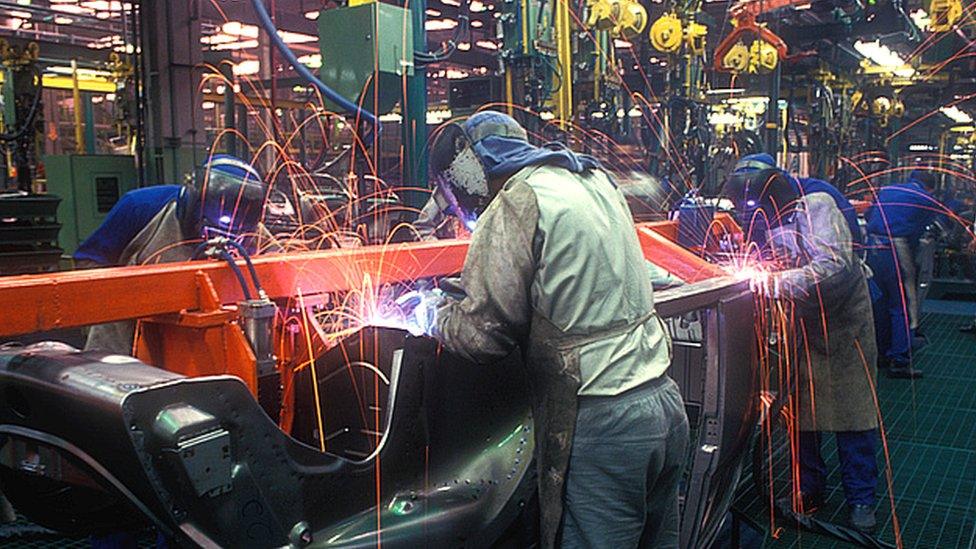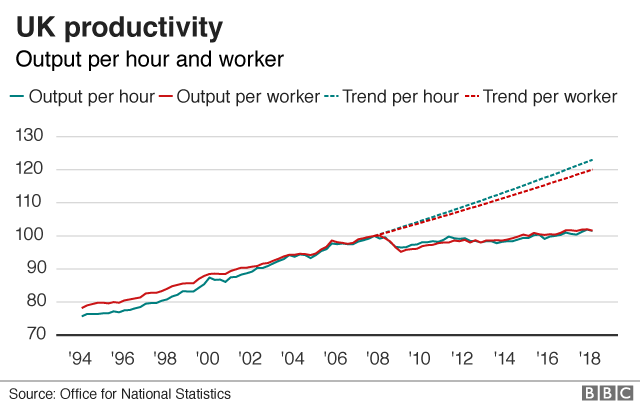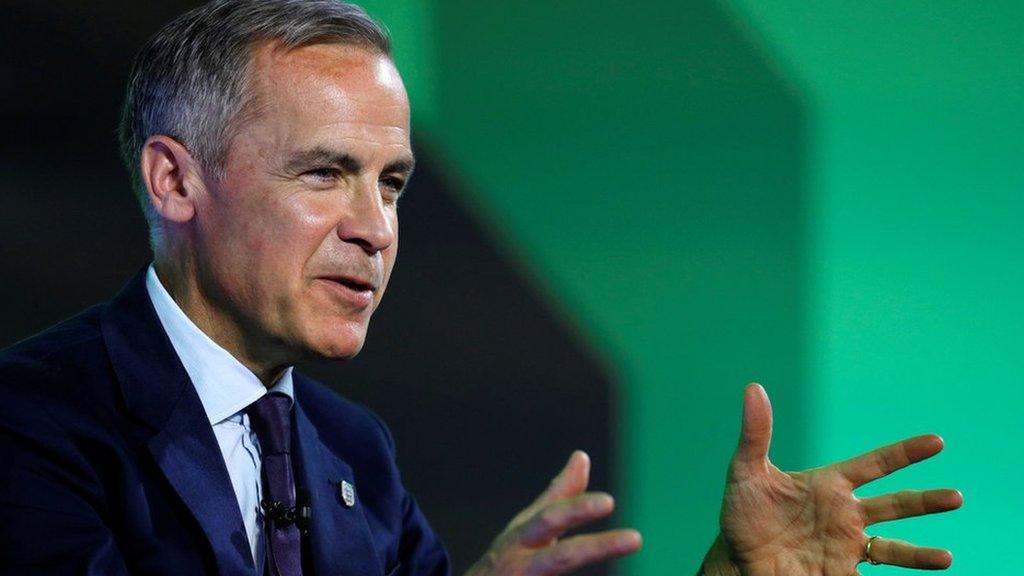'Productivity puzzle' weighs on UK growth
- Published
- comments

UK productivity shrank in the first quarter of the year and continues to lag rates achieved before the financial crisis in 2008, figures show.
The Office for National Statistics said productivity fell by 0.4% compared to the final quarter of last year.
It rose by 0.9% compared to the first three months of 2017.
However, the ONS said it remains below the average pre-crisis growth rate of 2%, suggesting that the "'productivity puzzle' remains unsolved".
Productivity - as measured by the amount of work produced per working hour - is the main driver of long-term economic growth and higher living standards.
However, growth has been flat over the past decade as the UK economy has recovered from the downturn triggered by the financial crisis.
A steep fall in output from the manufacturing sector, down 1.7% compared to the fourth quarter of last year, suggests that the "Beast from the East" cold snap in March affected productivity.
Output per hour from the services sector over the same period also fell, though less markedly at 0.2%.
A previous study by the ONS found that while more people are in employment, they have found work in parts of the economy that are just not that productive such as food and drinks services.
Consequently, the amount a UK worker produces and their output per hour has not followed the trend seen before the global financial crisis.

Howard Archer chief economic advisor to the EY ITEM Club, said that despite the first quarter "relapse", productivity is expected to improve.
He said: "The hope has been that the agreement of a Brexit transitional arrangement between the UK and the EU would support business confidence and investment, with hopefully positive implications for productivity."
However, he said: "Ongoing uncertainties over the future trade relationship between the UK and EU will likely still limit the upside for investment. There is also a downside risk to business investment if ratification of the transition arrangement becomes problematical."
Prime Minister Theresa May is meeting ministers on Friday to agree a blueprint for the UK's future relationship with the EU.
- Published5 July 2018

- Published4 July 2018
